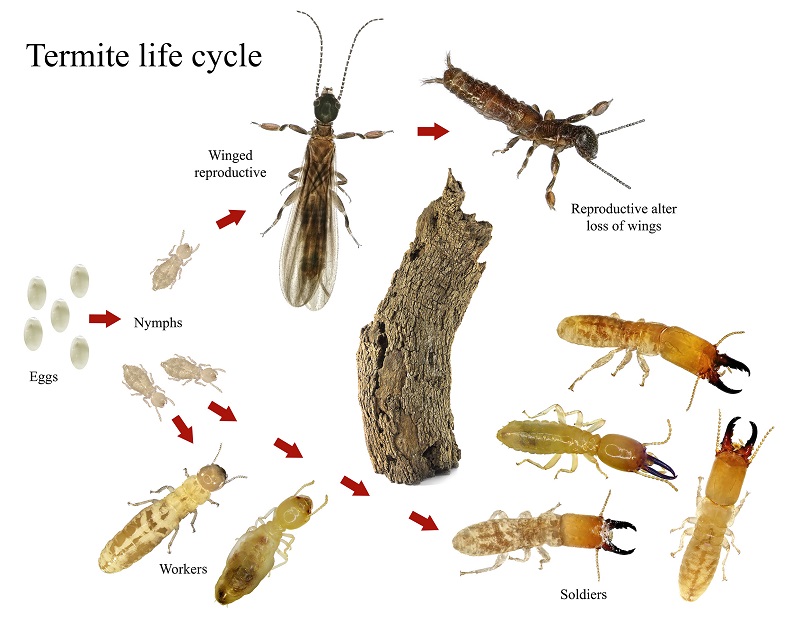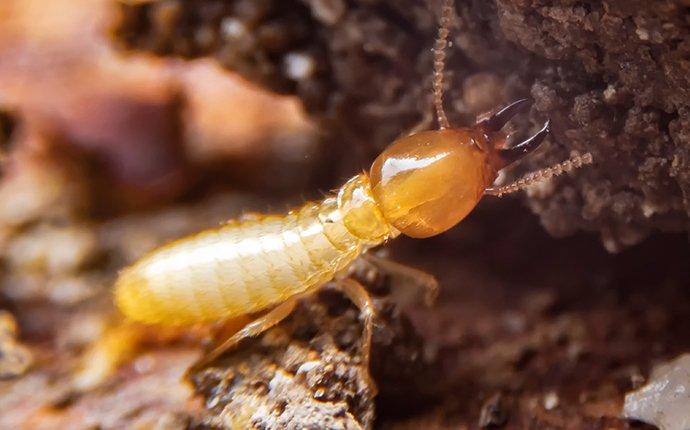Ecological Impact of Pest Control: Harmonizing Efficiency With Sustainability
The ecological impact of pest control is an essential issue that needs a delicate equilibrium between accomplishing efficiency in guaranteeing and taking care of bugs sustainability of our environments. From the use of dangerous chemicals that permeate into our soil and water to the unexpected effects on non-target varieties, the effects of conventional insect control practices are far-reaching.
Harmful Chemicals in Insect Control
The application of unsafe chemicals in insect control presents substantial environmental and health and wellness risks that call for cautious factor to consider and mitigation methods. Herbicides, pesticides, and pesticides are commonly utilized to eliminate pests, but their widespread application can cause unexpected consequences. These chemicals can pollute soil, water sources, and the air, impacting not just the targeted bugs yet additionally beneficial bugs, wild animals, and human beings.

To attend to these threats, incorporated parasite monitoring (IPM) strategies are being advertised as a much more sustainable alternative. IPM involves a mix of approaches such as organic control, habitat control, and the targeted use pesticides as a last resource (ant control faquay varina nc). By taking on an all natural technique to pest control, we can reduce the environmental and wellness effects connected with hazardous chemicals while effectively taking care of pest populations
Influence on Non-Target Types
Taking into consideration the unintentional consequences of parasite control techniques, the influence on non-target varieties is a vital aspect that needs extensive evaluation. While parasite control steps intend to target particular parasites, other microorganisms in the community might be inadvertently influenced. Non-target species, consisting of advantageous pests, birds, mammals, and even plants, can endure indirect or straight harm from pesticide applications or organic control methods.
Pesticides made to combat a particular insect pest may harm pollinators like bees or natural predators such as ladybugs. Biological control agents, if not species-specific, can pose risks to unintended targets, disrupting the ecological balance.
To reduce the effect on non-target types, integrated pest management (IPM) methods that emphasize a holistic approach to pest control are advised. These approaches focus on the usage of ecologically friendly practices, minimizing injury to advantageous organisms while effectively taking care of pest populaces. Carrying out extensive danger assessments and keeping track of the outcomes of parasite control initiatives are vital action in safeguarding non-target varieties and advertising overall ecosystem wellness.
Soil and Water Contamination
Unplanned environmental effects of parasite control techniques expand beyond impacting non-target species, with significant ramifications for soil and water contamination - termite control services. Pesticides, herbicides, and chemical plant foods used in parasite control can leach right into the soil and pollute groundwater, presenting a threat to both marine and earthbound communities.
Water contamination is an additional important issue connected with pest control practices. Overflow from farming areas treated with chemicals can lug these chemicals into nearby water bodies, affecting marine microorganisms and water top quality. Contaminants in water sources can have far-reaching consequences, impacting not only marine life however likewise human health and wellness with the intake of contaminated water or marine microorganisms. To alleviate soil and water contamination from parasite control tasks, integrated insect administration approaches that prioritize sustainability and reduce chemical inputs are crucial.
Air Pollution From Chemical Use
Exposure to airborne chemicals during agricultural applications poses a substantial issue for air contamination control measures. When pesticides are sprayed onto plants, they can volatilize into the air and kind unstable natural compounds (VOCs) and various other airborne contaminants. These chemicals can contribute to the development of ground-level ozone, a major component of smoke that can have harmful impacts on human health and wellness, plant productivity, and overall air top quality. In addition, pesticide drift, where chemicals are lugged by the wind to unexpected locations, can bring about the contamination of neighboring ecological communities and water bodies.
Approaches for Sustainable Parasite Control
In the realm of farming techniques, applying sustainable insect control methods is paramount for maintaining environmental equilibrium and guarding plant returns. Lasting pest control emphasizes making use of eco-friendly techniques to handle bug populaces properly while minimizing harm to non-target organisms and communities. Integrated Insect Administration (IPM) is a commonly embraced method that integrates biological, cultural, physical, and chemical control methods to achieve long-term parasite monitoring remedies.
One trick approach in lasting insect control is promoting biodiversity within agroecosystems. By enhancing natural adversaries of parasites, such as parasitoids and predators, farmers can decrease the need for artificial chemicals. Crop rotation and diversification are additionally efficient methods to disrupt pest life process and develop much less positive conditions for pests to grow. In addition, utilizing pest-resistant crop selections and utilizing techniques like catch chopping can help in reducing parasite pressure without relying greatly on chemical interventions. Inevitably, by incorporating these sustainable pest control techniques, farmers can attain an equilibrium between pest monitoring efficiency and ecological stewardship.
Conclusion
To conclude, the environmental effect of parasite control techniques have to be very carefully considered to balance performance with sustainability. Hazardous chemicals made use of in bug control can cause soil and water contamination, air pollution, and damage non-target varieties - ant control. It is critical to carry out lasting insect see page control methods to minimize these unfavorable impacts on the setting and promote a healthier ecological community for future generations
By adopting a holistic technique to pest control, we can decrease the ecological and health impacts connected with dangerous chemicals while effectively managing pest populations.

To minimize the air pollution created by pesticide usage, it is important to take on integrated bug monitoring techniques that focus on the use of non-chemical bug control methods, such as crop turning, natural predators, and immune plant varieties. Lasting parasite control emphasizes the usage of eco friendly techniques to take care of pest populations properly while reducing damage to non-target microorganisms and communities. Integrated Bug Management (IPM) is a widely embraced strategy that combines biological, cultural, physical, and chemical control techniques to attain lasting pest management remedies.